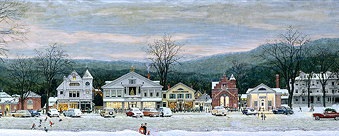
*This work, including all text, graphics, and designs, is protected by copyright law. Unauthorized reproduction, distribution, or modification of any part of this content without explicit permission from the copyright owner is strictly prohibited.
Murder in Mississippi (Southern Justice) Postcard
- Availability: In stock
- Availability: Awaiting Restock
Become a member
Join today to receive exclusive benefits and increased access to our museum.

*This work, including all text, graphics, and designs, is protected by copyright law. Unauthorized reproduction, distribution, or modification of any part of this content without explicit permission from the copyright owner is strictly prohibited.
Details
Standard size postcard measures 4" inches by 6" printed on heavy weight card stock.
LOOK's publication of Norman Rockwell's first civil rights subject The Problem We All Live With, drew letters of both praise and criticism. Rockwell had reached a turning point in his career and welcomed assignments that explored subjects The Saturday Evening Post would never have considered.
Rockwell painted Murder in Mississippi for an article examining the 1964 murders of civil rights workers Michael Schwerner, James Chaney, and Andrew Goodman. A comprehensive examination of the artist's process in creating this landmark civil rights masterpiece is included in the book collection American Chronicles: The Art of Norman Rockwell. .

